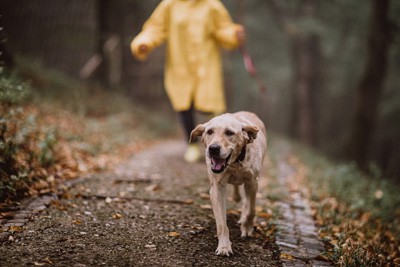Is your pet aged eight or above? They now qualify as a senior pet.
Help your senior pet live happier and healthier lives in their later years with regular checkups.
As our furry friends age, they may become susceptible to health issues related to ageing, similar to humans.

The difference is, they cannot communicate their discomfort, and may even hide symptoms.
Booking your senior pet in for regular check-ups with the vet, especially during the colder months when some conditions may become more prevalent, is crucial in identifying any potential health problems early on.
Spotting The Signs of Disease in Senior Pets
Do you know the signs to look out for when spotting some of the most common diseases affecting our senior pets?
At our clinic, we are dedicated to helping your pets live happy and healthy lives, regardless of their age. To help you spot the signs of common ailments affecting older pets, we've provided some information below.
Arthritis in senior dogs
Osteoarthritis, also known as arthritis, occurs when years of joint wear and tear cause inflammation and make movement painful and difficult. Commonly affecting hips, elbows, and knees, but can occur in any joint. Arthritis is especially common in older pets.
Spot the signs:
- General slowing down, especially on walks
- Disinterest in or reluctance to play, jump or go upstairs
- Limping/lameness
- Muscle wastage
- Licking or chewing affected joints
- Stiff walking motion, especially after waking up or exercising
Heart disease in dogs
Mitral Valve Disease (MVD) is the most common heart condition in dogs, which involves the degeneration of the heart valve. MVD is a chronic and progressive disease, and symptoms may not be easily noticeable.
Symptoms of MVD may not display easily and in some cases, affected dogs can live their entire lives without showing any signs of the disease. The main symptom for diagnosing MVD is the presence of a heart murmur – this will only be picked up during a routine examination by one of our vets where they can listen to your dog’s heart.
Spot the signs:
- Coughing, especially after lying down or sleeping and worsens at night
- Slowing down during walks or low energy
- Rapid breathing and panting
- Weight loss
- Fainting or collapsing
If in any doubt, it is always best to get your dog seen by us. On detection of a heart murmur, further tests may be required to confirm the diagnosis.
Heart Disease in Senior Cats
There are a number of different heart diseases that can affect our cats too; however, cardiomyopathy is the most common. But what is it and how do you know if your cat has it? The term cardiomyopathy covers any disease that affects the heart muscle. There are different types of cardiomyopathies and they are classified according to the effect they have on the function of the heart muscle.
Spot the signs:
- Breathing difficulties/rapid breathing
- Cold extremities, suggesting poor circulation
- Signs of fainting (although relatively uncommon).
Symptoms of heart disease may not display easily. Therefore, it is important to ensure that your cat has regular check-ups with us so that any early signs of heart disease can be detected and treated accordingly. We may be able to pick up on:
- A heart murmur (listening to your cat’s heart using a stethoscope)
- A gallop rhythm (where an additional third beat is heard with each contraction cycle)
- Increase or decrease in heart rate.
If in any doubt, it is always best to get your cat seen by us. On detection of a heart murmur, there may be further tests required to confirm the diagnosis.
Kidney disease in senior cats and dogs
Kidney failure, also known as renal disease, occurs when the kidneys are unable to perform important tasks, such as remove toxins from the blood, regulate blood pressure and acidity levels, and prevent water loss. Symptoms and severity may vary distinctly from case to case, with age being an important factor in developing kidney disease. But no matter the symptoms or age of your pet, healthy kidney function is vital.
Signs to look out for:
- Excessive drinking and frequent urination
- Vomiting
- Weight loss
- Loss of appetite
- Diarrhoea
- Ulcers in the mouth
- Sudden blindness due to high blood pressure
High blood pressure in older cats
High blood pressure, which can be caused by kidney, heart, or thyroid disease, can lead to complications with the kidneys, eyes, heart, or even the brain, this is due to the elderly cat's body working harder to circulate blood. Although it's important to note that high blood pressure can also occurr on its own.
Signs to look out for:
- Changes in the eye, including bleeding
- Blindness
- Weight loss
- Seizures
- Disorientation
- Change in personality
Cushings disease in dogs
Dogs with Cushing’s syndrome produce excessive amounts of cortisol. This can have harmful effects on other organs and on the ability of the body to regulate itself. Cushing’s occurs in dogs who are producing excessive amounts of cortisol, an important hormone that helps to regulate the body’s metabolism.
Spot the signs:
- Large water intake
- Frequent urination and possible incontinence
- Ravenous appetite
- Pot belly
- Thin skin
- Hair loss or recurrent skin diseases
- Muscle wastage
- Lethargy
- Excessive panting
Regular check-ups with us are important in ensuring your pet's health. If you suspect any of the above symptoms, please contact us for a health check.
Spread the cost of essential healthcare for your pet

To spread the cost of routine and essential healthcare for your pet, we offer our Pet Health for Life plan, which includes an annual health check.







